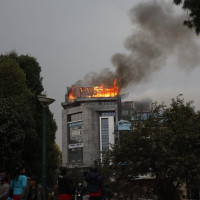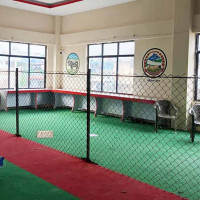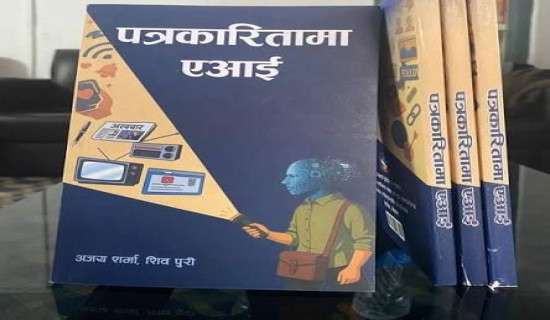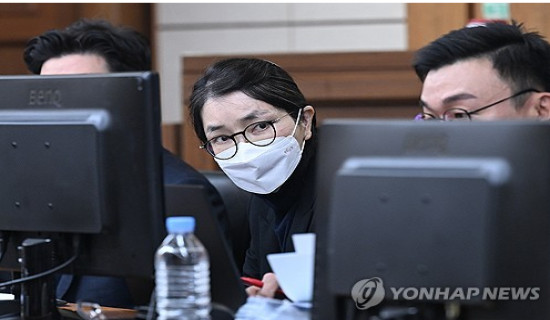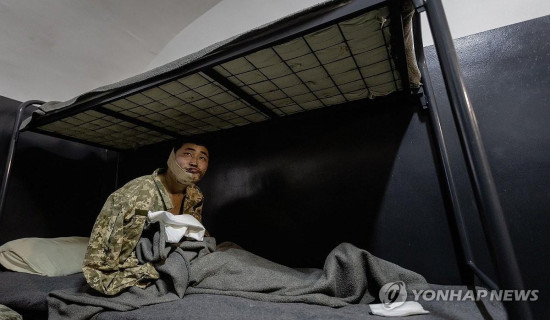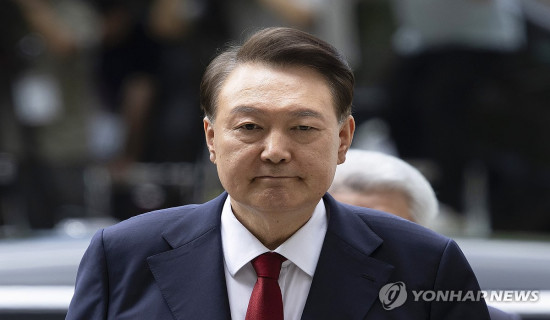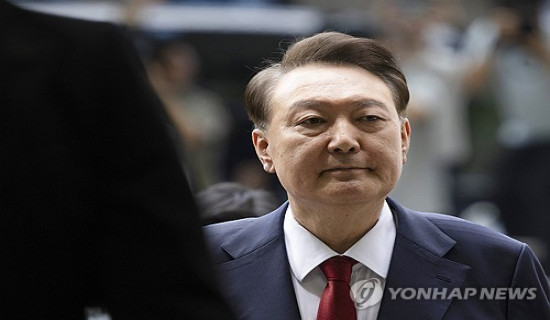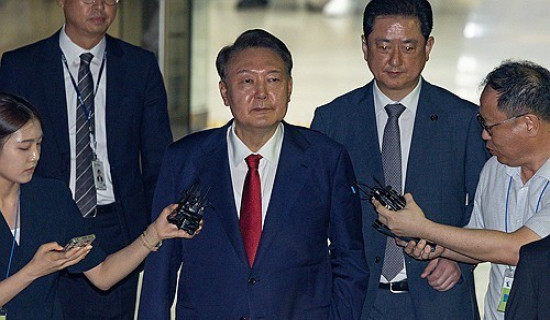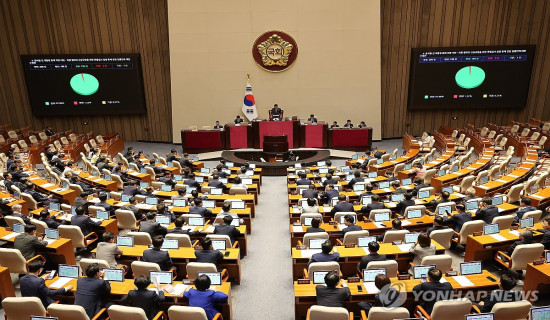- Tuesday, 3 March 2026
Yoon, from top prosecutor to presidency, becomes S Korea's 2nd president removed from office
By Chae Yun-hwan, SEOUL, April 4: Former President Yoon Suk Yeol, who dramatically rose from a top prosecutor to the presidency in about three years, became the nation's second president to be formally removed from office, with his surprise martial law bid rattling the nation for months and deepening political polarization.
Earlier in the day, the Constitutional Court upheld the National Assembly's impeachment against Yoon over his failed imposition of martial law in December, immediately forcing him out of office and revoking his presidential benefits.
With the ruling, Yoon, 64, follows in the footsteps of former President Park Geun-hye who was ousted in 2017 when the Constitutional Court upheld her impeachment over a corruption scandal.
Before taking the nation's highest office, Yoon began his career as a prosecutor in 1994, rising through the ranks to lead an investigation team into Park's corruption scandal that ultimately led to her ouster and subsequent imprisonment.
In 2019, he was appointed as the nation's top prosecutor under then President Moon Jae-in but clashed with the administration as he oversaw investigations into family members of former Justice Minister Cho Kuk.
Amid mounting pressure from the Moon administration, Yoon stepped down from his post in 2021, only to enter politics shortly after and win the presidential election in 2022 as the candidate for the conservative People Power Party.
Yoon's term was riddled with conflict with an uncooperative National Assembly dominated by the main opposition Democratic Party (DP). Yoon exercised his presidential veto power against 25 bills passed by the National Assembly.
Tensions with the DP appeared to reach an extreme in early December as the main opposition introduced motions to impeach the country's top auditor and a senior prosecutor, with Yoon declaring martial law on Dec. 3, which ultimately led to his downfall.
With his ouster from office mid-term, Yoon will no longer receive presidential benefits nor be eligible to be buried in a national cemetery.
South Korean presidents who complete their single five-year terms are awarded special treatment, such as a pension worth 95 per cent of their salary, a staff of four people, support for medical treatment, an office and a commemorative presidential project.
Under the national cemeteries management law, former presidents are eligible for burial in national cemeteries but those removed from office due to impeachment or other disciplinary measures lose the benefit.
Despite his ouster, Yoon will still continue to receive security protection as a former president but the level of protection will be significantly reduced from when he served as president.
Under the law on the treatment of former presidents, security protection is maintained even for those removed from office due to impeachment.
Yoon and former first lady Kim Keon Hee will continue to receive protection from the Presidential Security Service (PSS) for five years, which can be extended if the service's chief deems it necessary.
Yoon's security detail is expected to focus on guarding his residence but the former president will not be provided with a security convoy when on the move.
"In the impeachment of former President Park Geun-hye, security was focused on guarding her residence," a PSS official told Yonhap News.
The Constitutional Court's ruling came months after the National Assembly impeached Yoon on Dec. 14 over his martial law declaration. Yoon served less than three years of his five-year term after taking office in May 2022.
With his ouster, the country will hold a snap presidential election within 60 days.

.jpg)

-original-thumb.jpg)
